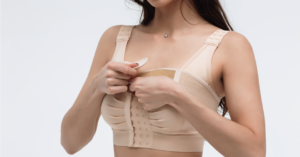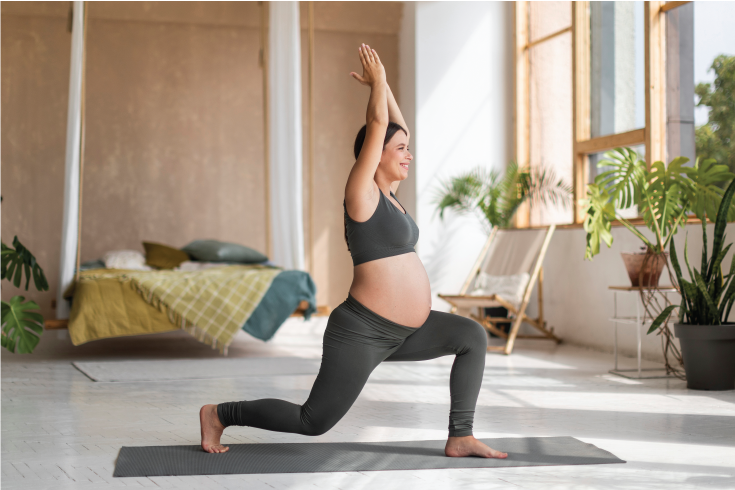Are you pregnant? Or, perhaps you are thinking of starting a family soon? Well, if either of those statuses apply to you right now, chances are high that you might already be equipped with relevant information on what you should and should not do during your pregnancy, in order to enjoy a safe and healthy one. However, let’s not forget that there is actually much more to know about this than just staying away from cigarettes, second-hand-smoke, alcohol consumption, and so on, and taking your prenatal vitamins diligently. While these help immensely, there may be other important points to consider for a happier, more gratifying nine months, and here are some of them.
1. Your Pregnancy Diet: It Matters More than You Think
It is unfortunate that our food culture today deduces that we unwittingly yet excessively expose ourselves (as well as our families) to highly processed foods filled with unnatural additives which are all harmful to our health following long term consumption. Even simple breakfast food such as conventional cereal, for example, or hot chocolate beverage, or even instant noodle, or instant anything for that matter are filled to the brim, so to speak, with added sugars, artificial sweeteners, artificial flavoring, coloring, preservatives, and the list goes on. None of these are what you would want to knowingly feed to your developing fetus, please believe us! Hence, if you are pregnant, our obvious advice to you would be, to switch, as much as you possibly can, to a plant based, whole food diet. Think home prepared meals made from healthy grains, vegetables, lentils and pulses, fruits, nuts, seeds, you get the picture. And, if you happen to be thinking of getting pregnant, don’t wait till you do to make that same switch – do it as soon as possible for a much higher chance of a healthier, happier pregnancy. One golden piece of information for you is, that folate or folic acid is absolutely crucial for the proper development of your baby’s neural tube (the tube covering your baby’s spinal cord), and to prevent conditions such as spina bifida. This same nutrient also plays an important role in building red blood cells for your body as well as your baby’s. Ask your doctor about folic acid supplements today.
2. Move that Body – Avoid Staying Sedentary for Too Long, Mama!
If exercising is found to be crucial for maintaining general health and to reduce stress, improve circulation, and keep us in a simply better mood, then it can be naturally concluded that pregnant women too should benefit immensely from regular exercises. In fact, experts have found evidence that there is actually a higher chance of developing preeclampsia during pregnancy if a pregnant mother does not exercise much, compared to mothers who partake in regular, moderate exercises! Note though, that although the key word may be exercise, moderation is also an important point. If your doctor permits it, aim for a 15 to 20-minute exercise session each day (or most days) of the week, to help keep your body limber, energised and healthy. It will do wonders for your mood too! Plus, you will be more likely to enjoy a better night’s sleep as well. Points to keep in mind when exercising during pregnancy:
- Wear comfortable clothing (and footwear if applicable)
- Stay hydrated before, during and after exercising
- Exercise in a cool, shaded place to avoid overheating
- Avoid overdoing it – to be safe, consult your doctor for advice on the type of exercise that will suit you best, and the duration too.
- Most pregnant women rarely go wrong with a half-hour walk everyday for better circulation, sound sleep, and more uplifted mood.
3. Take Prenatal Check-Ups Seriously
As soon as you find out that you are pregnant, the best first step would be to schedule a visit to your health care provider to begin prenatal care. These visits usually call for physical examinations, weight monitoring, and urine sample checks. As your pregnancy progresses, blood tests and imaging tests, such as ultrasound exams will also enter into the picture. It is also via these visits that you can discuss any health concerns you may have, with your doctor. Your doctor will also check on the health and development of your fetus, and alert you if there is anything to be concerned about. Prenatal checkups are crucial to help reduce the risk for problems during pregnancy, while ensuring positive fetal health and development. Your doctor will also be able to help you control possible existing conditions, such as high blood pressure and diabetes, which may have grave consequences on your pregnancy outcome if left undetected and unaddressed. Your doctor will also be able to advise on the best prenatal supplements for your particular needs. If you are pregnant and are yet to begin your prenatal checkups, we would like to prompt you to pick out a healthcare provider for your prenatal care right away, and to not delay it any longer.
4. Spare A Thought for Your Feet (New Shoes Might Be A Good Idea!)
We’re not talking just for exercising, but yes, that counts too. It just so happens that you may find yourself requiring a bigger shoe size following the flattening out of your feet due to overpronation caused by your centre of gravity being thrown off because of pregnancy weight gain and pressure to your feet. During the third trimester, many women also endure edema, which happens when the extra fluid in the body and the pressure from the growing uterus cause the ankles and feet to swell up. Comfortable shoes with a design that does not restrict your feet are crucial at this point to ensure lasting comfort. Another useful tip to remember is that elevating your feet now and then will help to keep any swelling at bay, or at least, to a minimum.
5. Drink. More. Water
We simply can’t emphasize this more, yet not many pregnant women truly realise how important it is to increase their fluid intake, particularly water, in order to stay healthy throughout their pregnancy, and to prevent the preventable. When a woman is pregnant, her blood has the added load of ensuring a proper supply of oxygen and essential nutrients to her baby through her placenta. It is also through this same blood circulation that carbon dioxide and wastes are transported out of her body. With an increased blood volume of up to 50%, it goes without saying that her body will need extra fluids to help it along with all these extra tasks. Apart from these, keeping well-hydrated will also help to prevent constipation, hemorrhoids, as well as urinary tract infections (UTIs). A well-hydrated body during pregnancy is also associated with less headaches and fatigue. So, if the common advice is to guzzle down 8 glasses of water a day, when you are pregnant, aim to increase it to about 10 glasses a day, and a little more when or if you are exercising. You may consult your doctor about this if you need to.
6. Manage Prenatal Stress – Do Not Ignore It!
While we appreciate that stress can be found in many forms, and there may be countless causes for it, when you are pregnant, do not let any kind of stress go unaddressed and unmanaged. While we may all have heard of postnatal stress, or even postnatal depression, few pregnant women realise that ignoring any kind of stress during their 9 months’ gestation could result in varying degrees of damage. Keep in mind that day-to-day tensions such as having to cope with morning sickness, or feeling moody one minute and happy the next, for example, are not likely to result in pregnancy loss. However, prolonged stress due to dramatic life events such as a death in the family, or moving to a new city, or even a divorce or separation, have all been linked to miscarriages among pregnant women worldwide. So, if you are pregnant and you think you fall into the category of someone who is experiencing a certain level of stress which is clearly causing great discomfort and distress to you, do talk to your healthcare provider so that he or she may point out to you the direction which you should be heading, to seek the help you need to manage your stress during this delicate period of your life.

Breast care during pregnancy may not be the first thing you would think about, but we ask that you spare a thought for your assets during this special period of your life – your pregnancy. Assuming that you have made the choice to breastfeed your baby (and we applaud you for that), you are going to need the extra comfort that a good quality maternity bra can offer, especially during the second trimester onward. Unless you have already bought the product and are purchasing more of it, we advise you to go to a physical store for this purpose, not only to try them on for the right fit, but also for the advice these retail shops might offer its customers, including picking out the most ideal and comfortable design, product care, etc. Keep in mind that your breast will inevitably grow bigger as your pregnancy progresses, there are no two ways about it. Hence, a maternity bra designed to accommodate this growth will be helpful. To help you breastfeed conveniently and with less hassle, modern nursing bras all have cups that can be unclasped with one hand, so that you need not even put your baby down while getting ready to nurse. Indeed, nursing bras have come a long way since the time of our ancestors! For your own convenience, you might want to get more than one, so that you will have at least one more to wear when another is being laundered.

While we know that not all women mind having to go on with their lives with these scars on their bellies and other areas of their bodies, there are others out there that do mind very much and are willing to try anything to eliminate their pregnancy stretch marks. At this point, we would like to point out that as with any other conditions out there, prevention is better than cure. And how will you prevent it, you may be wondering?
Firstly, your skin needs to be kept richly moisturised to prevent it from itching, which in turn, keeps you from having to scratch your skin, which damages it. Moisturisers also help to improve the skin tone, and not to mention, skin health, while minimising the appearance of stretch marks. When it comes to the usage of stretch mark creams or lotions however, it can depend on the product, for some are better than others. There is absolutely no harm in trying them, for they do, at the end of the day, help nourish the dermis, to help strengthen the skin’s structure and minimise the chances of developing stretch marks, or, at least, minimise their severity.



